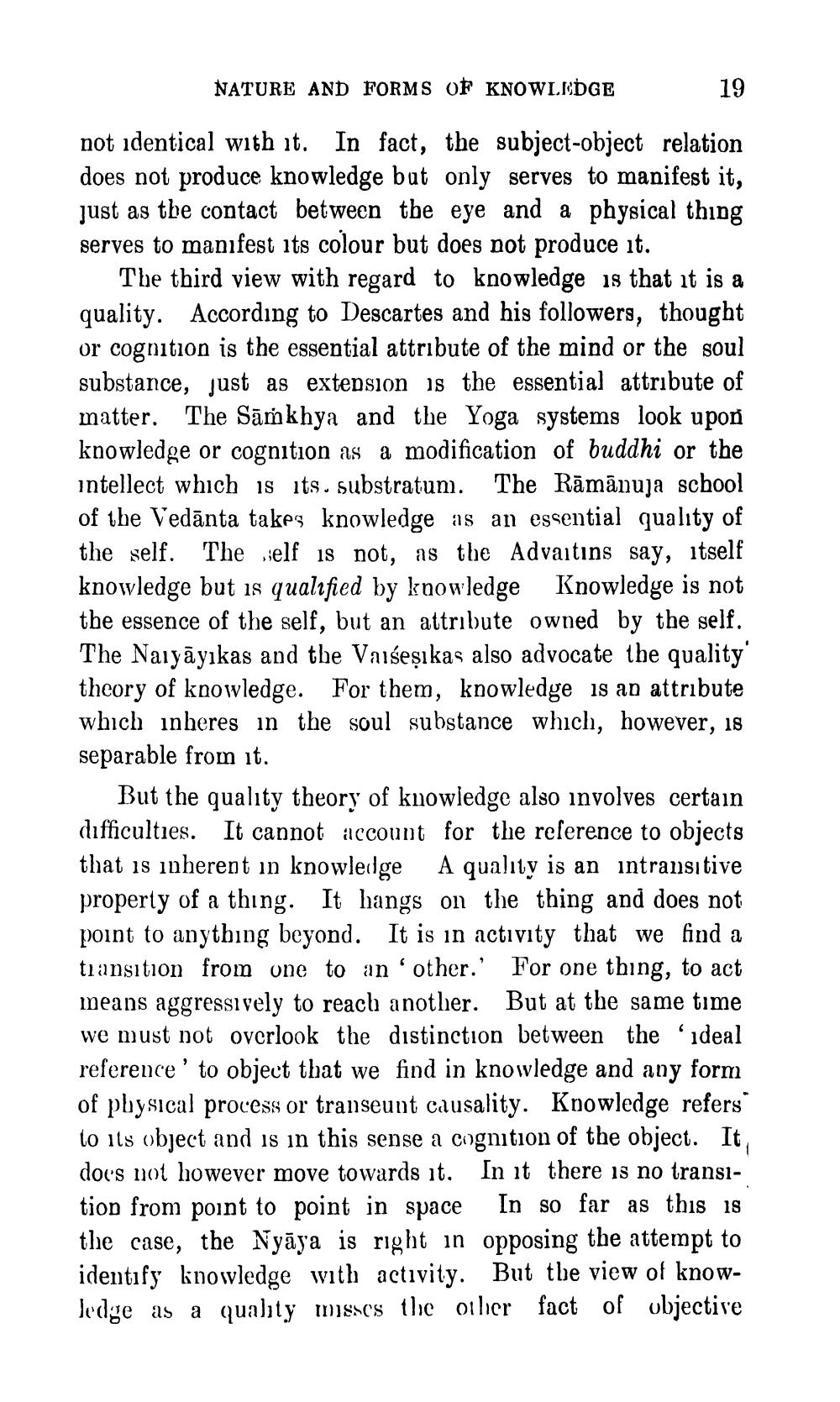________________
NATURE AND FORMS OF KNOWLEDGE
19
not identical with it. In fact, the subject-object relation does not produce knowledge but only serves to manifest it, just as the contact between the eye and a physical thing serves to manifest its colour but does not produce it.
The third view with regard to knowledge is that it is a quality. According to Descartes and his followers, thought or cognition is the essential attribute of the mind or the soul substance, just as extension is the essential attribute of matter. The Sārkhya and the Yoga systems look upon knowledge or cognition as a modification of buddhi or the intellect which is its substratum. The Rāmānuja school of the Vedānta takes knowledge as an essential quality of the self. The elf is not, as the Advaitins say, itself knowledge but is qualified by knowledge Knowledge is not the essence of the self, but an attribute owned by the self. The Naiyāyıkas and the Vaišeşikas also advocate the quality theory of knowledge. For them, knowledge is an attribute which inheres in the soul substance which, however, 18 separable from it.
But the quality theory of knowledge also involves certain difficulties. It cannot account for the reference to objects that is inherent in knowledge A quality is an intransitive property of a thing. It hangs on the thing and does not point to anything beyond. It is in activity that we find a transition from one to another.' For one thing, to act means aggressively to reach another. But at the same time we must not overlook the distinction between the ideal reference' to object that we find in knowledge and any form of physical process or transeunt causality. Knowledge refers to its object and is in this sense a cognition of the object. It does not however move towards it. In it there is no transition from point to point in space In so far as this is the case, the Nyāya is right in opposing the attempt to identify knowledge with activity. But the view of knowJedge as a quality misses the oulier fact of objective




